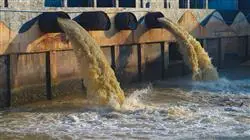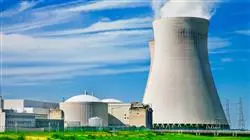University certificate
Accreditation/Membership
The world's largest faculty of engineering”
Introduction to the Program
Acquire the ability to diagnose, review, control and assess the adequacy of organizations to the new current energy requirements"
This Master's Degree represents the most comprehensive in-depth study of the different fields of development that determine the sustainability and energy efficiency of organizations. A highly practical training, focused on the knowledge of the standards, trends and novelties that are being developed in this field in the sector. This knowledge will enable companies to meet the environmental objectives of any project, including the integration of sustainable development parameters and the performance of audits, with the control of options involving the different usable energy sources and adaptation to climate change.

This Master's Degree will focus on the organization of companies, establishing a focus on the relationship between companies, the environment and sustainable development, addressing in detail the historical, current and future environmental issues. The competency and regulatory frameworks will be analyzed and the main international agreements on sustainability such as the Paris Agreement and the United Nations Sustainable Development Goals will be covered.
Other aspects to be analyzed are those affecting water management and pollution, addressing the regulatory framework of the water sector, establishing the regulatory hierarchy, the European Water Charter and the guidelines of a sanctioning dossier.
By completing and passing the evaluations of this program, the student will obtain a solid knowledge of the rules and regulations to be applied in relation to environmental and energy management in organizations. A complete, high-intensity program, which will allow students to incorporate into practice the most up-to-date knowledge in this field of work.
With an approach focused on efficiency, the university program allow students to optimize their efforts and achieve the best learning results in the shortest possible time. Additionally, as it is a 100% online academic itinerary, the student is not constrained by fixed schedules or the need to move to another physical location, but can access the contents at any time of the day, balancing their professional or personal life with their academic life.
On the other hand, this TECH Global University program stands out for having a qualified and experienced faculty. Likewise, among the prestigious experts of this faculty there is an International Guest Director. This figure of broad scientific and research prestige in relation to business sustainability is responsible for 10 exclusive and intensive Masterclasses.
A program that integrates 10 exhaustive Masterclasses, given by a prestigious International Guest Director"
ThisMaster's Degree inCorporate Sustainability Management contains the most complete and up-to-date program on the market. The most important features include:
- Practical cases presented by experts in Corporate Sustainability Management
- The graphic, schematic, and practical contents with which they are created provide scientific and practical information on the disciplines that are essential for professional practice
- Practical exercises where the self-assessment process can be carried out to improve learning
- Special emphasis on innovative methodologies
- Theoretical lessons, questions to the expert, debate forums on controversial topics, and individual reflection assignments
- Content that is accessible from any fixed or portable device with an Internet connection
Integrate the requirements outlined by the current environmental management standards into your way of working, following the standards of ISO 14001"
The program’s teaching staff includes professionals in the sector who bring their work experience to this program, as well as renowned specialists from leading societies and prestigious universities.
Its multimedia content, developed with the latest educational technology, will allow the professional a situated and contextual learning, that is, a simulated environment that will provide an immersive training programmed to train in real situations.
This program is designed around Problem-Based Learning, whereby the professional must try to solve the different professional practice situations that arise during the course. For this purpose, the students will be assisted by an innovative interactive video system created by renowned and experienced experts.
Integrate the requirements that current environmental management standards demand in any project or organization into your way of working, with the control of ISO 14001"

A 100% online Master's Degree that will allow you to balance your studies with your professional work with maximum organizational flexibility"
Why study at TECH?
TECH is the world’s largest online university. With an impressive catalog of more than 14,000 university programs available in 11 languages, it is positioned as a leader in employability, with a 99% job placement rate. In addition, it relies on an enormous faculty of more than 6,000 professors of the highest international renown.

Study at the world's largest online university and guarantee your professional success. The future starts at TECH”
The world’s best online university according to FORBES
The prestigious Forbes magazine, specialized in business and finance, has highlighted TECH as “the world's best online university” This is what they have recently stated in an article in their digital edition in which they echo the success story of this institution, “thanks to the academic offer it provides, the selection of its teaching staff, and an innovative learning method aimed at educating the professionals of the future”
A revolutionary study method, a cutting-edge faculty and a practical focus: the key to TECH's success.
The most complete study plans on the university scene
TECH offers the most complete study plans on the university scene, with syllabuses that cover fundamental concepts and, at the same time, the main scientific advances in their specific scientific areas. In addition, these programs are continuously being updated to guarantee students the academic vanguard and the most in-demand professional skills. In this way, the university's qualifications provide its graduates with a significant advantage to propel their careers to success.
TECH offers the most comprehensive and intensive study plans on the current university scene.
A world-class teaching staff
TECH's teaching staff is made up of more than 6,000 professors with the highest international recognition. Professors, researchers and top executives of multinational companies, including Isaiah Covington, performance coach of the Boston Celtics; Magda Romanska, principal investigator at Harvard MetaLAB; Ignacio Wistumba, chairman of the department of translational molecular pathology at MD Anderson Cancer Center; and D.W. Pine, creative director of TIME magazine, among others.
Internationally renowned experts, specialized in different branches of Health, Technology, Communication and Business, form part of the TECH faculty.
A unique learning method
TECH is the first university to use Relearning in all its programs. It is the best online learning methodology, accredited with international teaching quality certifications, provided by prestigious educational agencies. In addition, this disruptive educational model is complemented with the “Case Method”, thereby setting up a unique online teaching strategy. Innovative teaching resources are also implemented, including detailed videos, infographics and interactive summaries.
TECH combines Relearning and the Case Method in all its university programs to guarantee excellent theoretical and practical learning, studying whenever and wherever you want.
The world's largest online university
TECH is the world’s largest online university. We are the largest educational institution, with the best and widest online educational catalog, one hundred percent online and covering the vast majority of areas of knowledge. We offer a large selection of our own degrees and accredited online undergraduate and postgraduate degrees. In total, more than 14,000 university degrees, in eleven different languages, make us the largest educational largest in the world.
TECH has the world's most extensive catalog of academic and official programs, available in more than 11 languages.
Google Premier Partner
The American technology giant has awarded TECH the Google Google Premier Partner badge. This award, which is only available to 3% of the world's companies, highlights the efficient, flexible and tailored experience that this university provides to students. The recognition as a Google Premier Partner not only accredits the maximum rigor, performance and investment in TECH's digital infrastructures, but also places this university as one of the world's leading technology companies.
Google has positioned TECH in the top 3% of the world's most important technology companies by awarding it its Google Premier Partner badge.
The official online university of the NBA
TECH is the official online university of the NBA. Thanks to our agreement with the biggest league in basketball, we offer our students exclusive university programs, as well as a wide variety of educational resources focused on the business of the league and other areas of the sports industry. Each program is made up of a uniquely designed syllabus and features exceptional guest hosts: professionals with a distinguished sports background who will offer their expertise on the most relevant topics.
TECH has been selected by the NBA, the world's top basketball league, as its official online university.
The top-rated university by its students
Students have positioned TECH as the world's top-rated university on the main review websites, with a highest rating of 4.9 out of 5, obtained from more than 1,000 reviews. These results consolidate TECH as the benchmark university institution at an international level, reflecting the excellence and positive impact of its educational model.” reflecting the excellence and positive impact of its educational model.”
TECH is the world’s top-rated university by its students.
Leaders in employability
TECH has managed to become the leading university in employability. 99% of its students obtain jobs in the academic field they have studied, within one year of completing any of the university's programs. A similar number achieve immediate career enhancement. All this thanks to a study methodology that bases its effectiveness on the acquisition of practical skills, which are absolutely necessary for professional development.
99% of TECH graduates find a job within a year of completing their studies.
Master's Degree in Corporate Sustainability Management
.
In the corporate world, maintaining good business sustainability allows to carry out responsible processes, without neglecting economic, social and environmental criteria. This is why updating the knowledge of company leaders becomes a fundamental factor in the management of organizations. For this reason, at TECH we have developed a Master's Degree in Corporate Sustainability Management, a program with the highest academic level focused on promoting energy efficiency. Throughout 12 months you will specialize in environmental management, energy sources and management tools to achieve environmental success in the projects developed. This will allow you to comply with all the required parameters and carry out periodic audits in order to adapt planning and apply tools that help contribute to climate change. Take this online postgraduate course and incorporate new skills to your professional career, you can increase your chances of employability by 99%.
Study an online postgraduate degree in business sustainability
.
At TECH we focus on providing you with the most innovative and updated tools on proper environmental management, we have the latest educational technology focused on enhancing your management skills. You will be able to acquire the necessary skills to promote improvement and sustainable development in your organization; this will allow you to achieve the proposed objectives and generate highly beneficial processes for the entire community involved. Thanks to this, you will find the balance between sustainable development, the business sector and the environment.
Get certified in the largest Faculty of Engineering
.
By taking this postgraduate course you will know in depth all the environmental agreements in force at the moment, this will allow you to know in real time how the regulations around this sector work. You will also be able to understand everything related to renewable energy sources, fossil fuels and nuclear energy. By studying these topics in depth, you will learn how to accurately apply the processes of distribution and transformation of energy power and establish reformable strategies that allow maximum use of resources. Develop this academic program 100% online and become an expert in environmental viability by addressing issues such as water pollution management, proper waste management and the processes required to obtain environmental certifications in the organization.







